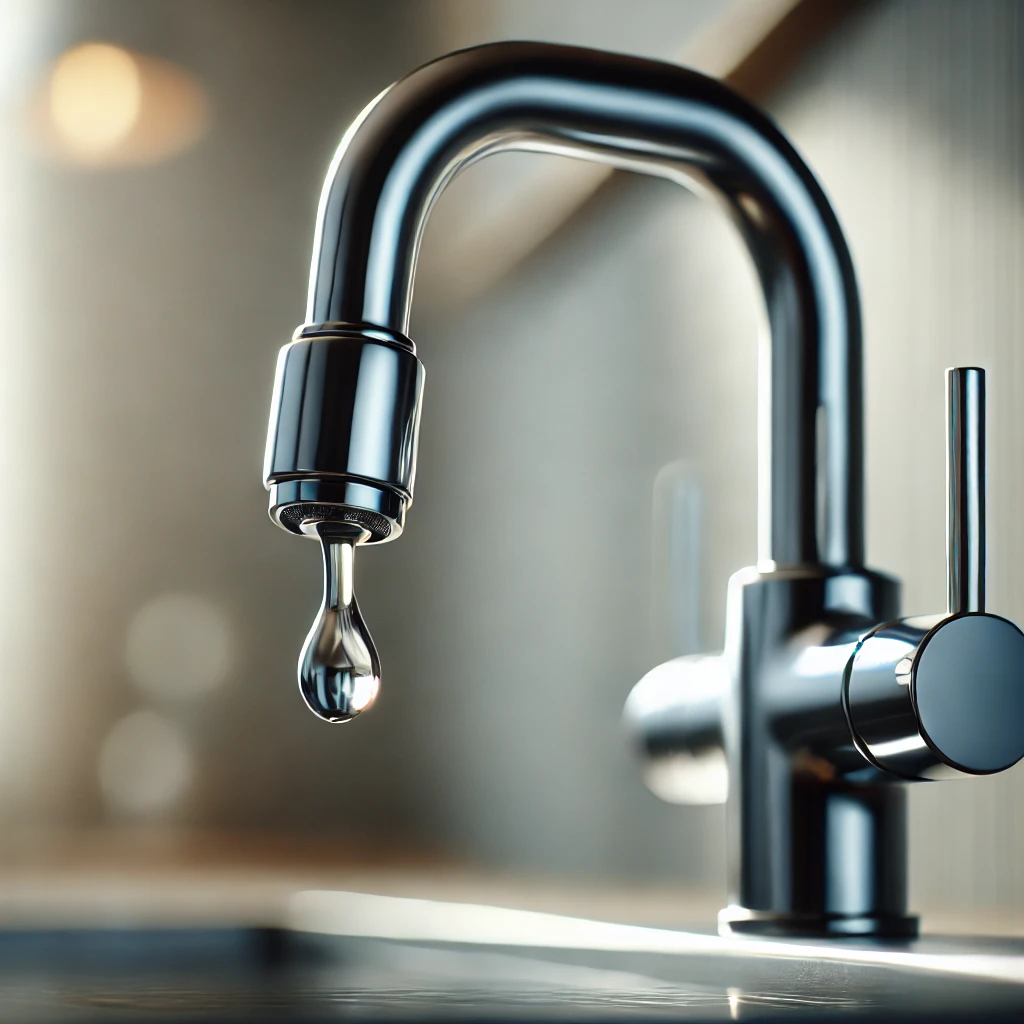Plumbing issues are an inevitable part of homeownership, but many problems can be avoided with regular maintenance and early intervention. From minor annoyances like dripping faucets to major concerns such as water damage from hidden leaks, understanding common plumbing issues and their solutions can save homeowners both time and money. In this article, we’ll explore five of the most common plumbing problems, their potential causes, and practical tips on how to prevent them.
1. Dripping Faucets
A dripping faucet may seem like a minor issue, but it can lead to significant water waste and higher utility bills over time. According to the Environmental Protection Agency (EPA), a faucet leaking one drip per second can waste over 3,000 gallons of water annually.
Causes:
Worn-out washers or O-rings
Corroded valve seats
Loose or improperly installed parts
Prevention:
Regularly inspecting and replacing worn washers or seals can prevent leaks. If a faucet begins dripping, it’s best to repair it promptly before it worsens. In some cases, upgrading to a modern, water-efficient fixture can reduce the risk of future leaks and lower water consumption.
2. Clogged Drains
Clogged drains are among the most frequent plumbing issues homeowners face. Whether it’s a slow-draining sink or a fully blocked shower drain, clogs can be frustrating and unsanitary.
Causes:
Hair, soap scum, and grease buildup
Flushing non-flushable items (wipes, cotton balls, feminine products)
Food scraps or oil accumulation in kitchen sinks
Prevention:
To prevent clogs, avoid pouring grease or oil down the drain and use drain strainers to catch hair and debris. Regularly flushing drains with a mixture of hot water and baking soda can help break down minor buildup. For more stubborn clogs, professional drain cleaning services can safely clear the blockage without damaging your pipes.
3. Running Toilets
A running toilet may seem like a minor annoyance, but it can waste hundreds of gallons of water each day, significantly increasing water bills.
Causes:
Faulty flapper valve or seal
Malfunctioning fill valve
Improperly adjusted float height
Prevention:
Regularly inspect toilet components for wear and replace worn-out flappers or seals. Adjusting the float to the proper level can prevent constant running. If the problem persists, it may indicate a more significant issue with the toilet's internal mechanism, requiring professional repair or replacement.
4. Low Water Pressure
Low water pressure can make simple tasks like showering or washing dishes frustrating. It can also indicate an underlying plumbing problem.
Causes:
Mineral buildup in pipes or faucet aerators
Leaks in the plumbing system
Failing pressure regulators
Prevention:
To prevent low water pressure, periodically clean faucet aerators and showerheads to remove mineral deposits. If you notice a sudden drop in pressure, it could signal a hidden leak. In this case, contacting a plumber to conduct a thorough inspection is recommended. Installing a water softener can also help prevent mineral buildup in areas with hard water.
5. Water Heater Issues
Water heater problems can range from inconsistent water temperatures to complete failure. Lack of hot water can be especially frustrating during the colder months.
Causes:
Sediment buildup in the tank
Corroded or failing heating elements
Improperly set thermostat
Prevention:
To extend the life of your water heater, flush the tank annually to remove sediment buildup. Inspect and replace the anode rod as needed to prevent corrosion. If you experience fluctuating water temperatures, it may be time to have the thermostat or heating elements inspected. Regular maintenance by a licensed plumber can prevent unexpected breakdowns and extend the unit's lifespan.
When to Call a Professional
While some plumbing issues can be resolved with basic DIY fixes, others require the expertise of a licensed plumber. If you experience frequent leaks, recurring clogs, or inconsistent water temperatures, it may indicate a larger, underlying problem. Addressing plumbing issues promptly not only prevents costly damage but also helps maintain the efficiency of your home’s water system.
At Applause Plumbing and Heating, we are committed to helping homeowners avoid plumbing emergencies by providing expert advice and reliable services. Whether you need routine maintenance, leak detection, or water heater repair, our experienced team is here to help. Visit our Plumbing Blog for more tips, maintenance guides, and professional insights to keep your plumbing system running smoothly.
Conclusion
Plumbing issues are a common part of homeownership, but with preventative measures and routine maintenance, you can reduce the risk of costly repairs. By staying informed about common plumbing problems and their solutions, you can better protect your home’s plumbing system. For expert advice and reliable services, turn to Applause Plumbing and Heating—your trusted partner for all your plumbing and heating needs.


